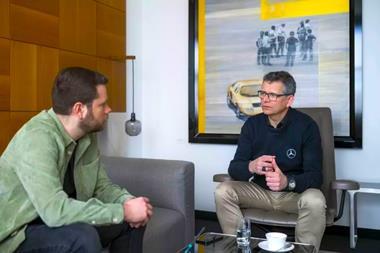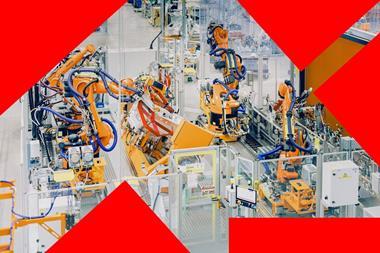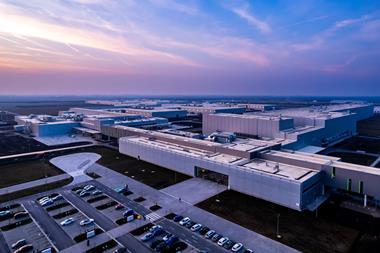
 In business since 1973, noted cutting room authority Lectra has established an industry-leading position by helping customers to achieve operational excellence through a unique combination of expertise, advanced technologies and best-in-class services.
In business since 1973, noted cutting room authority Lectra has established an industry-leading position by helping customers to achieve operational excellence through a unique combination of expertise, advanced technologies and best-in-class services.
As the privileged partner to a broad portfolio of premier businesses, Lectra provides integrated cutting room solutions for the automotive industry aimed at enabling top-tier suppliers of automotive seats, interiors and airbags to achieve their strategic objectives over the long term.
With field-tested expertise from product development to the cutting room, Lectra strives to meet customer needs and expectations, creating value through the continuous optimisation of processes. By making supply chains more agile, ensuring compliance with increasingly stringent safety regulations and maximising profit in the face of rising raw material costs and growing complexity, Lectra supports the sustained competitiveness of its customers.
A technology company from the earliest beginningsInnovation lies at the heart of Lectra’s customer-centred approach. A pioneer in computer-aided design (CAD) systems for the textiles industry as of 1976, Lectra first expanded its range of automated cutting solutions with models designed specifically for automotive manufacturing in 1991. Since that time, five successive generations of automated cutting systems have been launched to meet the evolving needs of car seat and interior manufacturers.
Lectra first demonstrated its technological leadership with the introduction of computer-numerical control (CNC) for fabric cutting machines. With the launch in 2003 of VectorAuto MP – the first high-ply, high-speed automated fabric cutter for automotive – Lectra succeeded in delivering significantly higher productivity over that of die presses. The new technology enabled comparable cutting quality, with a major competitive advantage: flexibility. This is because CAD-CAM methods eliminate the need for costly, time-consuming retooling. Making the switch means it is no longer necessary to manufacture new die cavities following a change in vehicle program.
An employee for 20 of the firm’s 43 years of existence, Automotive Product Manager Pierre-Michel Richer believes that without this major revolution, automotive seat and interior manufacturing would still lag behind all other automotive manufacturing processes. “Going digital enabled seat suppliers to catch up with the OEMs,” recalls Richer. “In fact, it enabled them to catch up with the rest of the industry and become more competitive. With the exception of leather, the entire supplier ecosystem has embraced digitalisation.”
Deriving value from cutting room processesIn 2007, a new generation of VectorAuto fabric cutters helped take automated cutting mainstream, gradually evolving into the industry standard. Early adopters of the new digital technology were even able to increase their market share thanks to significantly increased production flexibility, as in the case of Johnson Controls. The vehicle interior personalisation trend had already taken hold by this time. The tier-1 supplier recognised that it would be impossible to produce the same volumes of car seat sets with the additional layer complexity that different fabrics, styles, and features added using the conventional die press system.
Over the course of a 10-year project, Lectra teams worked closely with Johnson Controls to support the transition of their European production plants to a digital cutting room equipped with VectorAuto MX9 units. The project included concurrent implementation of an action plan for continuous improvement.
“Being a flexible supplier means we can more easily win contracts,” states van Willy van Looy, Global Director, Advanced Manufacturing Engineering, Cut & Sew Operations, Johnson Controls. “With the Vector fabric-cutting solutions we have today, we can easily go through all of the different options that weren’t available 20 years ago.”
To better meet the requirements of automotive manufacturers in the Industry 4.0 era, in 2012 VectorAuto was endowed with predictive maintenance drawing on the intelligence of hundreds of embedded sensors. The solution’s smart capabilities drove the reliability rate up to 98%, making VectorAuto one of the most reliable systems on the market and preventing costly production stoppages. With close to 600 units in operation to date, VectorAuto has become the market’s best-selling fabric cutter.
Continued leadership in digital transformationWith new disruptive digital technologies finally replacing tried and tested conventional methodologies, digital transformation is well underway in the manufacture of fabric car seats and interiors. Now, as the automotive leather industry grapples with the challenge of modernising predominantly manual processes, Lectra aims to help suppliers achieve the same transformation accomplished in fabric cutting. As the final frontier, leather vehicle interior manufacturing is the last remaining area of automotive manufacturing to switch to digitalisation.
To successfully transition to a digital leather-cutting value chain, all areas of the supply chain must adopt digital processes for product development, industrialisation and cutting. The entire automotive ecosystem stands to realise significant savings, faster time to market and improved flexibility and agility through digitalisation of product development and manufacturing processes.
Lectra has taken several steps to guide industry players through this major transformation, holding two consecutive annual conferences on the future of automotive leather as well as ad-hoc workshops at customers’ request.
To equip the new digital leather cutting room, Lectra’s VersalisAuto leather cutting solution offers the same high reliability rate as its fabric-cutting counterpart, VectorAuto, thanks to embedded intelligence. Launched in 2013, VersalisAuto enables uninterrupted hide cutting with an unparalleled level of quality and material gains impossible to achieve using die presses.
Putting road safety back into airbag manufacturingFinally, after demonstrating 30 years of leadership in airbag cutting, early in 2016 Lectra launched next- generation laser cutting solution FocusQuantum, which leverages the advanced technologies underpinning Lectra’s Vector and Versalis ranges. Offering twice the productivity of the previous generation of airbag cutters, the integrated FocusQuantum solution pushes the boundaries of cutting with the handling of distorted materials.
Airbag manufacturers today face complex new challenges stemming in part from the massive recalls of recent years caused by faulty airbag inflators. This has driven the OEMs to institute drastic airbag quality control measures despite growing pressure to drive down the overall cost per bag.
When combined with process and resource optimisation, the unmatched performance of Lectra’s breakthrough laser cutting technology enables airbag manufacturers to meet these multi-pronged challenges, even at high volumes. FocusQuantum’s pre-production software suite and production line pilot contribute to a level of airbag quality nearing zero defects, even when using less expensive, highly distorted materials. This means passenger safety remains at the heart of the manufacturing process despite the use of cost-efficient airbag textiles like polyester.

Value-added expertise to effect lasting changeLectra reinvests a significant portion of annual revenue to boost its R&D capability and meet customer needs as new market developments unfold. To ensure that the company’s latest innovations can satisfy the requirements of a real production environment, Lectra collaborates with major manufacturers of airbags and automotive leather and fabric seats and interiors to test designs on-premises in the last phases of development. Working hand-in-hand with its partners, Lectra experts review and re-assess results, enabling select customers to benefit from advanced testing and relay valuable insight and observations.
Lectra’s experts also deliver performance optimisation and continuous improvement on a project basis, for individual customers. With an international network of 32 subsidiaries, Lectra helps worldwide manufacturing groups overcome business challenges wherever in the world they are located. By following Lectra’s recommendations on refining their processes, customers can maximise the value of their investment, eliminating non-value-added activities, increasing production capacity and improving product quality.
This is precisely what Japan-based automotive seat manufacturer Tachi-S achieved when it turned to Lectra’s experts to improve processes at its production plant in Calvillo, Mexico. “Lectra offered technological development and expertise that helped us to reduce operating costs by almost 20 cents per set, as well as to be more efficient in the delivery of our product,” observes Luis Soria, Senior Corporate Purchasing Manager, Tachi-S Mexico.
Vehicle interior equipment suppliers are playing an increasingly critical role in driving down costs and increasing quality. As the provider of integrated CAD/CAM solutions and value-added professional services, Lectra has remained steadfast in its pursuit of excellence while at the same time boldly redefining the cutting room paradigm, with heavy emphasis on continuous improvement.
“As consultants, we help our customers to determine and identify areas of opportunity and to set the goals that can lead us, step by step, to achieving the expectations and results that they anticipate in the short, medium and long term,” remarks Armando Rodriguez, Business Developer, Lectra Automotive Consulting Projects. “We stay with them as they keep working toward the continual improvement of their processes.”
Lectra’s expertise in automotive cutting room processes has matured throughout more than 20 years of successful partnerships with the world’s largest groups. The company’s depth and breadth of technology and experience have enabled it to acquire the industry best practices, lean methodologies and change management experience necessary to deliver expert analysis and create value.



































